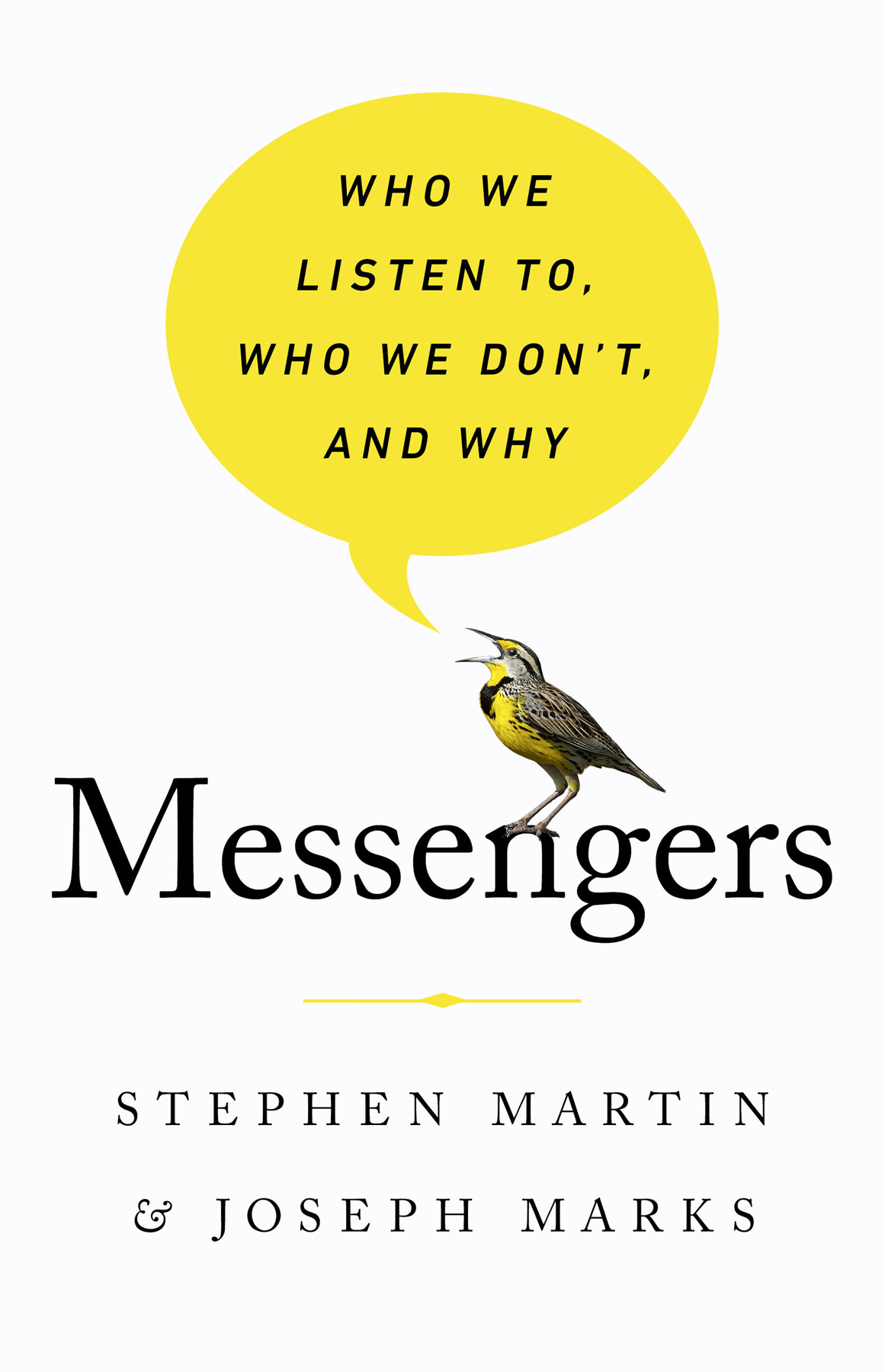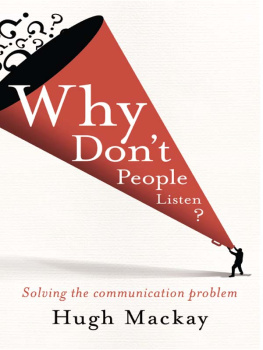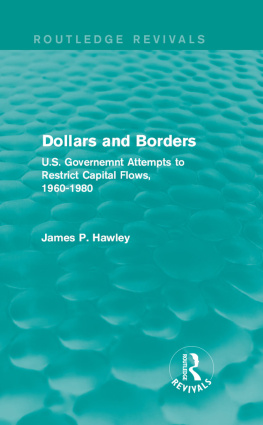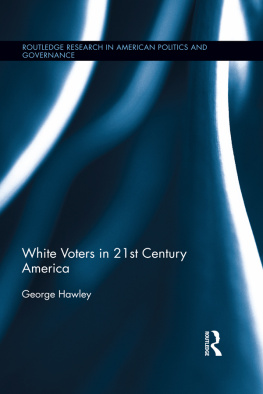Martin Stephen Hawley - Messengers: Who We Listen To, Who We Dont and Why
Here you can read online Martin Stephen Hawley - Messengers: Who We Listen To, Who We Dont and Why full text of the book (entire story) in english for free. Download pdf and epub, get meaning, cover and reviews about this ebook. year: 2019, publisher: PublicAffairs, genre: Politics. Description of the work, (preface) as well as reviews are available. Best literature library LitArk.com created for fans of good reading and offers a wide selection of genres:
Romance novel
Science fiction
Adventure
Detective
Science
History
Home and family
Prose
Art
Politics
Computer
Non-fiction
Religion
Business
Children
Humor
Choose a favorite category and find really read worthwhile books. Enjoy immersion in the world of imagination, feel the emotions of the characters or learn something new for yourself, make an fascinating discovery.

- Book:Messengers: Who We Listen To, Who We Dont and Why
- Author:
- Publisher:PublicAffairs
- Genre:
- Year:2019
- Rating:5 / 5
- Favourites:Add to favourites
- Your mark:
- 100
- 1
- 2
- 3
- 4
- 5
Messengers: Who We Listen To, Who We Dont and Why: summary, description and annotation
We offer to read an annotation, description, summary or preface (depends on what the author of the book "Messengers: Who We Listen To, Who We Dont and Why" wrote himself). If you haven't found the necessary information about the book — write in the comments, we will try to find it.
Messengers: Who We Listen To, Who We Dont and Why — read online for free the complete book (whole text) full work
Below is the text of the book, divided by pages. System saving the place of the last page read, allows you to conveniently read the book "Messengers: Who We Listen To, Who We Dont and Why" online for free, without having to search again every time where you left off. Put a bookmark, and you can go to the page where you finished reading at any time.
Font size:
Interval:
Bookmark:

Copyright 2019 by Stephen Martin and Joseph Marks
Cover design by Pete Garceau
Cover image iStock/Getty Images
Cover copyright 2019 Hachette Book Group, Inc.
Hachette Book Group supports the right to free expression and the value of copyright. The purpose of copyright is to encourage writers and artists to produce the creative works that enrich our culture.
The scanning, uploading, and distribution of this book without permission is a theft of the authors intellectual property. If you would like permission to use material from the book (other than for review purposes), please contact permissions@hbgusa.com. Thank you for your support of the authors rights.
PublicAffairs
Hachette Book Group
1290 Avenue of the Americas, New York, NY 10104
www.publicaffairsbooks.com
@Public_Affairs
First Edition: October 2019
Published by PublicAffairs, an imprint of Perseus Books, LLC, a subsidiary of Hachette Book Group, Inc. The PublicAffairs name and logo is a trademark of the Hachette Book Group.
Simultaneously published in Great Britain by RH Business Books
The Hachette Speakers Bureau provides a wide range of authors for speaking events. To find out more, go to www.hachettespeakersbureau.com or call (866) 376-6591.
The publisher is not responsible for websites (or their content) that are not owned by the publisher.
Images reproduced by kind permission of: Rhesus monkey: iStock/Donyanedomam; proud faces: J. L. Tracy and R. W. Robins; facial widths: Robert Ward; 7-up baby: Advertising Archives; American presidents: John Wiley and Sons/Caroline F Keating, David Randall and Timothy Kendrick; Veganuary poster: Veganuary; Christine Keeler: Getty/Hulton Deutsch.
Library of Congress Control Number: 2019946447
ISBNs: 978-1-5417-2438-9 (hardcover), 978-1-5417-2439-6 (ebook)
E3-20190910-JV-NF-ORI
Arguably, a societys most important messengers are its teachers and parents.
We dedicate this book to an example of the very best of each.
To Robert Cialdini. A brilliant scientist, patient mentor, inspirational colleague and warm and trusted friend. The day I met you was indeed a lucky one.
To Hilary and Richard Marks. Thank you for all your support, wise words and good humour over the years. You are two of the best role models a son could ask for.
O N THE SURFACE SHE POSSESSED many of the characteristics of an effective messenger. The daughter of Priam, King of Troy, and his second wife Queen Hecuba, Cassandra had status. She was beautiful, too: tall and elegant, with dark-brown curly locks of hair that coursed gracefully over her slender shoulders. Her eyes, similarly russet in colour, captured others attention with such a piercing force that they would often be overcome with wonder. But perhaps her most impressive feature was one most people only dream of possessing: the gift of prophecy.
It was said that Cassandras ability to interpret and communicate the will of the gods was a gift from Apollo, as part of his attempt to seduce her. She predicted soldiers hiding inside a huge wooden horse left outside the gates of Troy. She foretold King Agamemnons demise. She prophesied that her cousin, Aeneas, would establish a new nation in Rome. She even foresaw her own death. But Apollos gift to Cassandra was a cursed one that caused her much anguish and, ultimately, led to insanity and death. For although she agreed to pledge herself to Apollo in exchange for this precious gift, Cassandra then rebuffed his advances, so she was punished in the most merciless way. Forcing his lips upon hers, the god spat into her mouth and
Cassandra may be a mythical character, but she represents a fascinating paradox. She possessed knowledge and shared it with people who stood to benefit from listening to what she had to say, yet no one paid her any attention or believed her. It is a paradox that we encounter every day. There are plenty of people around who make accurate predictions, whose proposals are carefully based on the evidence available or whose points of view are eminently sensible, but who have the misfortune to go unheeded even to be mocked. They suffer from what has become known as The Curse of Cassandra.
In the late 1990s the US stock exchanges were a positively bullish place to be, with financiers shovelling seemingly bottomless pits of cash into dot-coms. It seemed everyone on Wall Street had bought into the idea that riches beyond compare were waiting to be made. Everyone, that is, except for one investor the highest-profile investor. Warren Buffett, the then sprightly sixty-nine-year-old founder and chairman of investment behemoth Berkshire Hathaway, was unyielding in his disdain for what he described as the irrational exuberance of the market. After a heady experience of that kind, normally sensible people drift into behavior akin to that of Cinderella at the ball Overstaying the festivities, he remarked, will eventually bring on pumpkins and mice.
Many chastised Buffett for his gloomy commentary and his ominous warnings of a bubble about to burst. The champions of dot-com companies claimed that Berkshire Hathaways chairman, a well-known technophobe, would miss out on the oceans of profit that stood to be made. For a while the markets agreed. In the late 1990s the companys shares fell. But Buffett remained steadfast, adding a mid-sized energy supplier and a furniture rental business to his companys portfolio, further reinforcing the markets perception that he was a Luddite. Drawing parallels between his pessimistic prophecies and those of Cassandra, investors dubbed Buffett the Wall Street Cassandra.
Of course the markets did eventually pop, with the previously dismissive investors and not Buffett suffering the reputational damage. Their Wall Street Cassandra sneer proved unwise. In the long term it also turned out to be inaccurate. Ultimately, Buffett was publicly vindicated and his credibility soared to a level that has remained largely untouched ever since. He ceased to carry the curse of the Wall Street prophet who goes unheeded in their own lifetime.
That dubious distinction belongs elsewhere to a true victim of the Cassandra Complex whose name almost no one would have heard of, had it not been for the investigative skills of the savvy journalist Michael Lewis.
The real Wall Street Cassandra was a man named Michael Burry, who was born in New York in 1971. He studied medicine at the University of California, Los Angeles, before earning his MD in Nashville, Tennessee. While working as a resident at Stanford he found time to start his own hedge fund and quickly developed an aptitude as a shrewd and successful investor. In 2001, shortly after the dot-com bubble burst, the S&P 500 fell almost 12 percent. That year Burrys investments were up more than 50 percent. Beginners luck maybe? Yet the following year when the S&P fell by 22 percent, Burry returned more than 15 percent. And even when the stock market began to register a positive turn, in 2003, Burry beat the market hands-down. By 50 percent to 28 percent.
During the mid-2000s Burry shifted his investment focus. He started taking positions against subprime mortgage bonds, at a time when there was no formal way to bet against them (he had to invent his own method). Burrys genius lay in spotting the under-recognised, perilous fault lines underpinning the subprime mortgage market. And shorting them. The message he seemed to be sending to the market was one of an impending apocalypse. It was a message that seemed credible and evidence-based, and it was made with conviction. Burry had skin in the game. He was putting his own money on the line.
Font size:
Interval:
Bookmark:
Similar books «Messengers: Who We Listen To, Who We Dont and Why»
Look at similar books to Messengers: Who We Listen To, Who We Dont and Why. We have selected literature similar in name and meaning in the hope of providing readers with more options to find new, interesting, not yet read works.
Discussion, reviews of the book Messengers: Who We Listen To, Who We Dont and Why and just readers' own opinions. Leave your comments, write what you think about the work, its meaning or the main characters. Specify what exactly you liked and what you didn't like, and why you think so.








